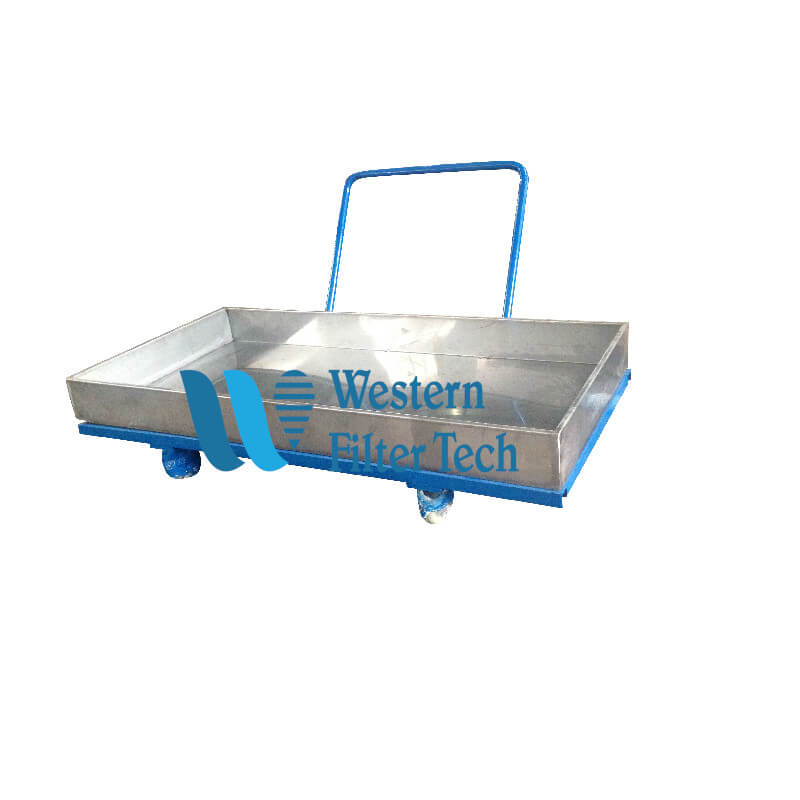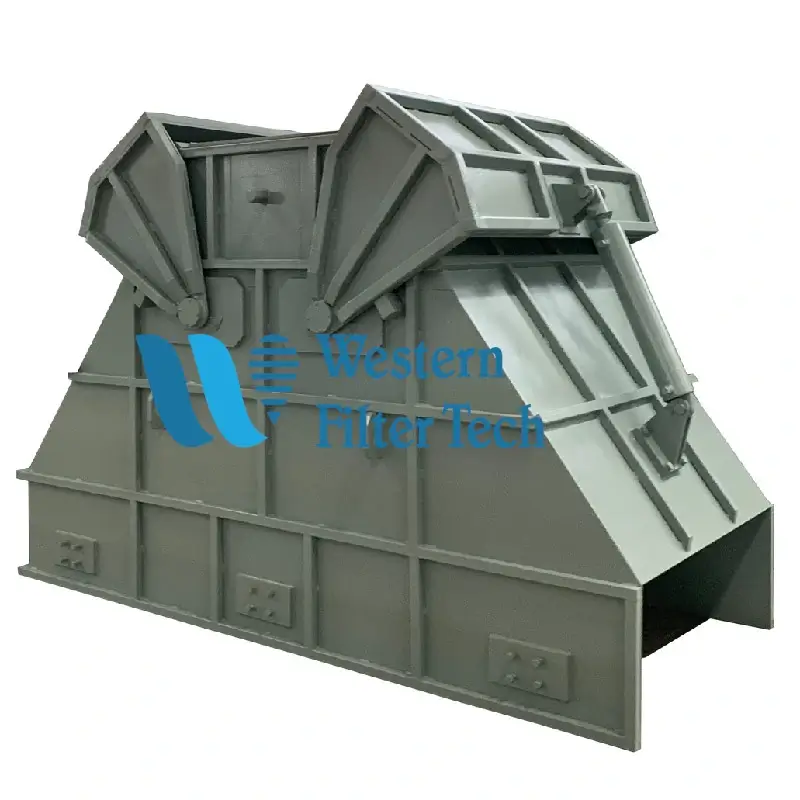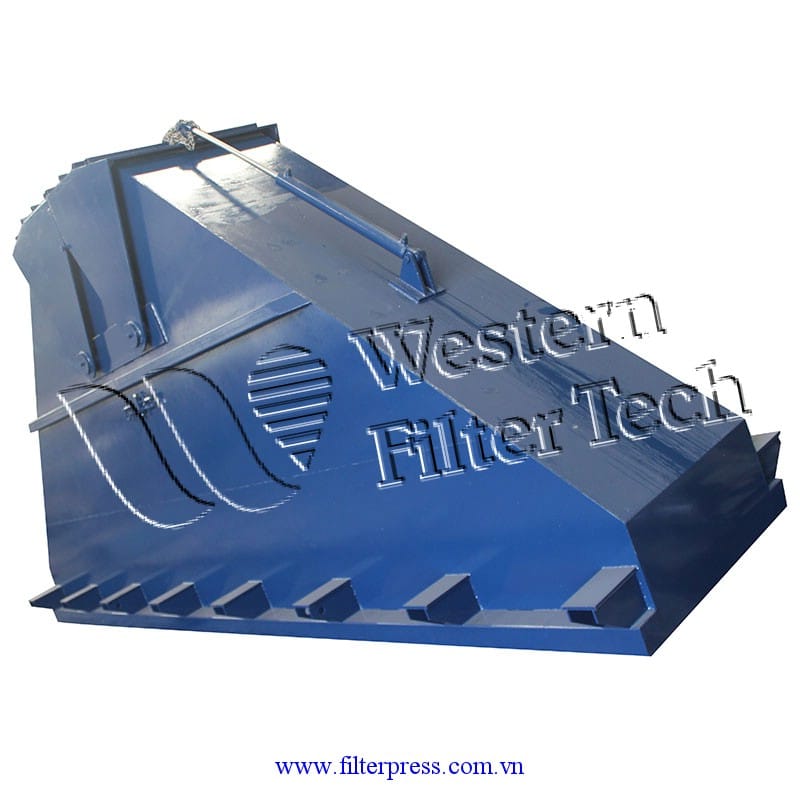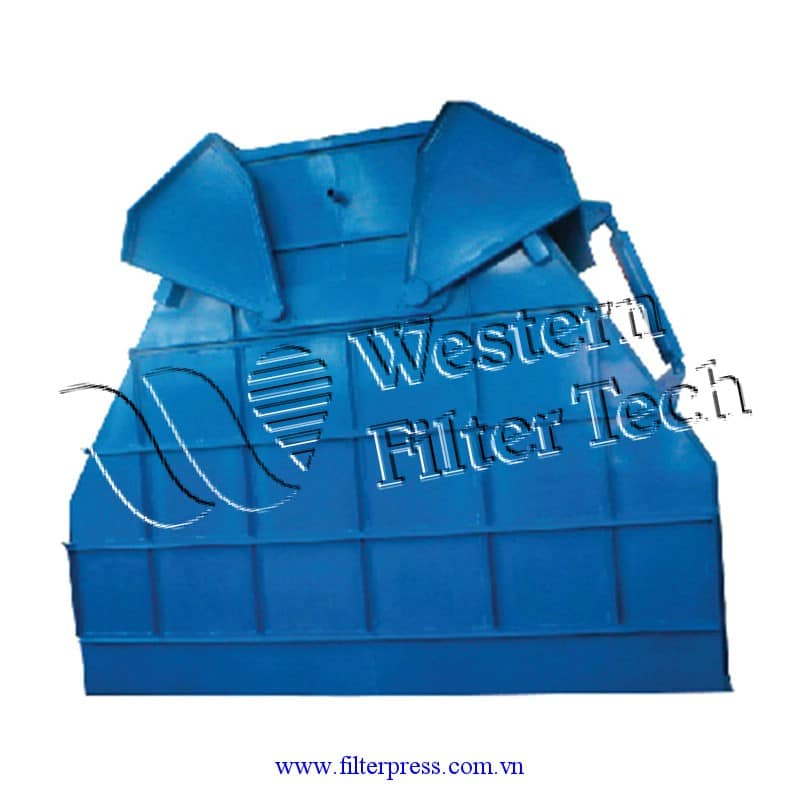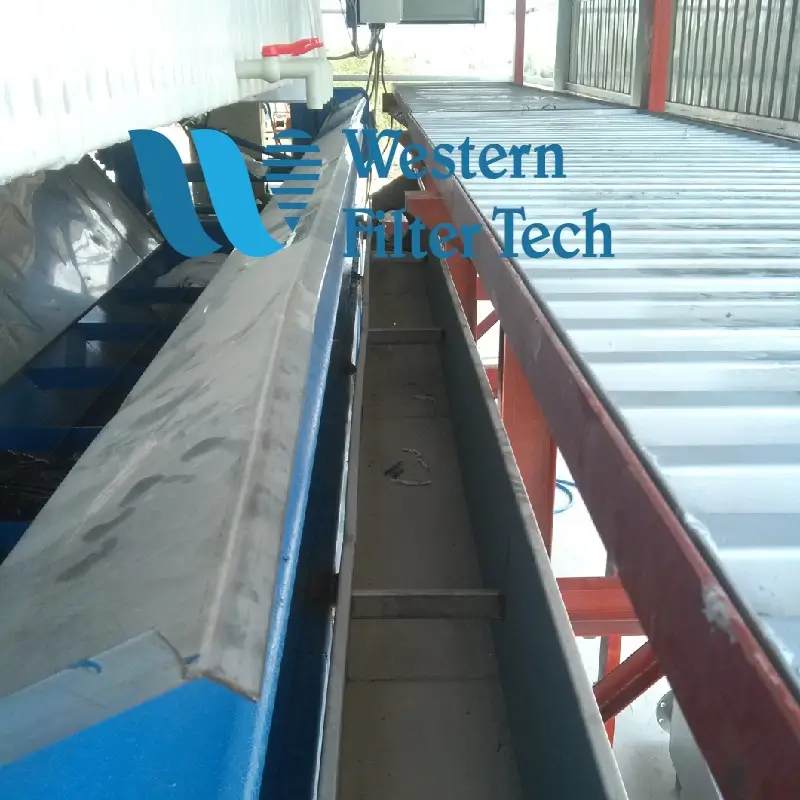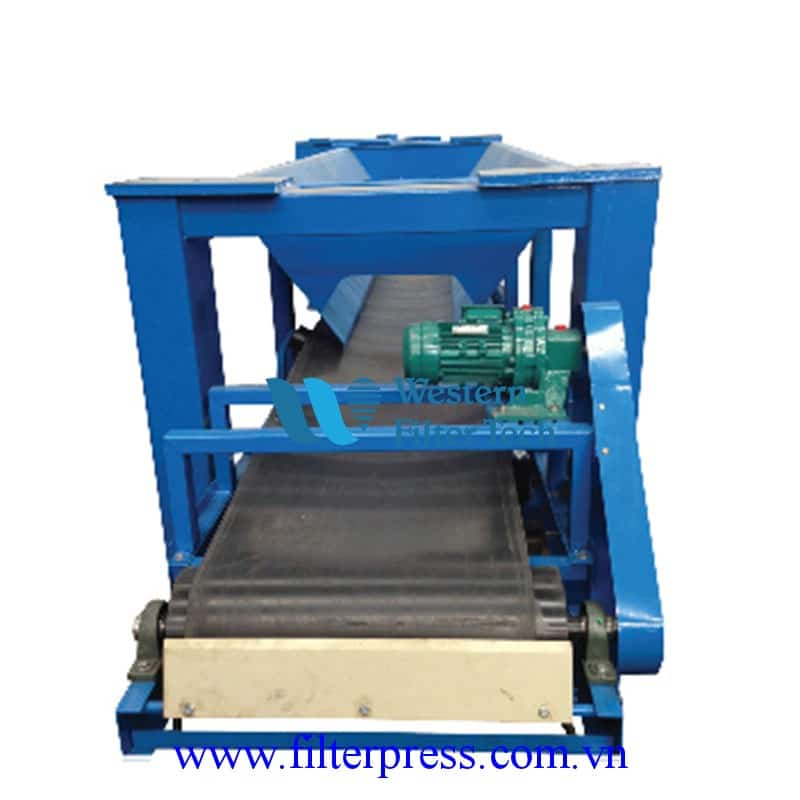Sludge cake hopper
The design, shape and dimensions of the cake hopper depend on many factors: the layout of the structure, the required time for cake accumulation, feeding and discharging methods, types of the bearing structures of the building, the physical properties of the cake (humidity, bulk weight, angle of repose), and environmental and economic requirements. In this regard, the cake hopper refers to the products, individually developed and manufactured for each facility.
Most often, the cake hopper is structurally a combined container – the upper part has a rectangular plan view (all walls are vertical), and the lower part has the form of a trapezoidal prism (side walls inclined).
The sludge cake hopper can also have a cylindrical upper part and a lower part in the form of a truncated cone.
The cake is fed to the top of the hopper. The upper part can be either closed or open. In some cases, it is necessary to equip the cake hopper with a feeder that distributes the cake throughout the hopper.
The lower part of the hopper is equipped with a locking device. For round and small rectangular hoppers, this is usually a flat hopper gate with an electric or manual drive. For large hoppers, there may be different options – a group of (several) flat gates, a bucket gate, etc.
Cake tends to stick to the walls of the hopper and form a “bridge” when discharged. To prevent these phenomena, the lower part of the hoppers is equipped with various mechanisms preventing the bridging and facilitating the discharge, such as blade stirrers, screw stirrers, or the inclined walls of the lower part are equipped with electrically-driven vibrators.
Figure 1 shows an example of a hopper for the accumulation of 48 m3 of cake with a paddle stirrer and a bucket gate. Figure 2 shows an example of a rectangular hopper for the accumulation of 16 m3 of cake with a flat gate, and Figure 3 shows an example of a circular-in-plan hopper for the accumulation of 8 m3 of cake with a flat gate and vibrators with a conical bottom


